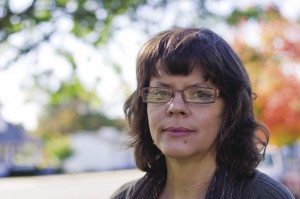
Mary Sprunger, MA, PhD (U. of Illinois), history professor at EMU.
Mark Jantzen, Bethel associate professor of history, and his colleague Mary Sprunger (both Bethel graduates, in 1985 and 1984, respectively), professor of history at EMU, were co-planners for “Marginal or Mainstream? Anabaptists, Mennonites and Modernity in European Society,” a conference held on the Bethel (Kan.) campus June 25-26, 2010.
The thesis of the conference was that Mennonites – far from retreating into obscurity after the 16th century, as standard textbooks suggest – were an important influence on European economics, politics, religion and other areas of society over the next centuries, into the “modern era.”
Questions included the negative and positive aspects of Mennonite participation in European economies as well as the growing need to face issues of wealth and privilege; the particular experience of Dutch Mennonites, who experienced societal tolerance much earlier and therefore assimilated faster; the complex relationship between theology and culture and whether to speak of theology was even appropriate; and the extent to which European Mennonites set their own agenda or had it set by the state or “the world.”
Both Jantzen and Sprunger were surprised and pleased by the number and diversity of conference attenders. “I was expecting 50 or so, 100 at the most,” Jantzen says. “We had 120 registered, with at least 30 more who dropped in at different times.”
“I enjoyed the audience cross-section of both scholars and laypeople,” Sprunger says. “It made for a bigger audience than you often get at these conferences. Bethel was well situated, near retirement communities and museums, with a lot of [local] people with a deep interest in Mennonite history.”
Sprunger has taught at EMU for 18 years. During the 2010-11 academic year, she is on sabbatical, writing a book on the social, economic, and cultural dimensions of a wealthy, urban Mennonite church during the Dutch Golden Age in the 17th century. Her sabbatical also permits time for archival research in Amsterdam, the Netherlands, and for teaching in Nanchong, China.
— Largely culled from a Bethel press release by Melanie Zuercher